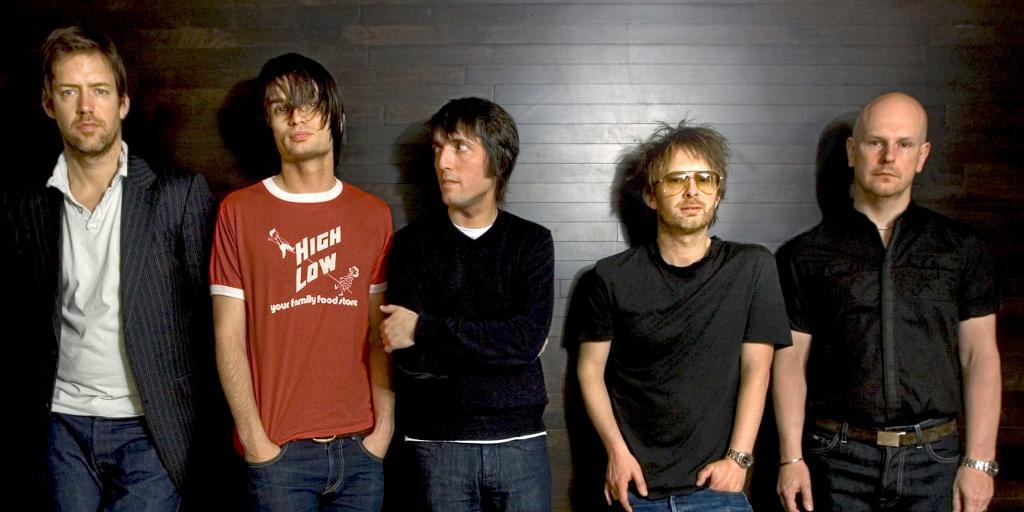Of course, it was a strange concert, how could it not be?
For three decades, Radiohead has always chosen to reject industry rules and the pomp of stardom, not meeting fan expectations, not seeking comfort in their identity or legacy, and, well, making "weird music." The five members of Radiohead separated without an official announcement, and tonight they have reunited over seven years after their last concert in the only way possible: by rejecting industry norms with an unexpected tour of only 20 concerts in five cities, starting not in the UK or as headliners of a major festival, but at the Movistar Arena in Madrid; avoiding stage gimmicks that promote idolatry, not saying a word between songs, and performing a repertoire of "weird music" where the Oxford group left out some of their most popular songs like Creep and High and Dry, but played 25 songs from their nine albums, except the first one.
The concert was scheduled for 8:30 p.m., although the organization had announced that the lights in the venue would go out an hour earlier. It didn't happen. The only surprise at 7:30 p.m. was discovering that the stage, shaped like a dodecahedron, was located in the center of the arena. This platform was surrounded by a kind of seven to eight meters high cage made of movable panels, on which images were projected as a screen. It was a stage to perform on but also a protective refuge.
Thom Yorke confronts a pro-Palestinian spectator on stage who reproached him for Radiohead's concerts in Israel
Thom Yorke's tales beyond Radiohead
Their music with transcendent ambitions and experimental attitude was built by combining rock, psychedelia, punk, synthesizer electronics, and pop. Some of Radiohead's songs are kung-fu, some are judo, and sometimes they are tai chi. The emotions unfolded in this apoteosic experience: jolting, in peaks and valleys, at a deafening volume (some audience members on the floor complained of saturated sound), with a contrasting start from the ambient Let Down to the super energetic 2+2=5 and Sit Down. Stand Up.
There were surprises, although the first one had already been taken by the press. Photographers were not allowed entry, and accredited journalists were prohibited from taking photos with their phones. Not accrediting photographers is something we occasionally endure in major international tours (from Ed Sheeran to Kendrick Lamar, passing through Billie Eilish), but prohibiting journalists from taking photos is unusual and unnecessary, as the photos that could be taken from the side stands would likely be unpublishable.
These are songs from 20 and 30 years ago, catharsis coming from another world, another reality. Radiohead, and particularly Thom Yorke, intensely detest nostalgia, hence the main threat of this tour is the group reappearing as a tribute to themselves, capitalizing on the interest of a new generation of listeners (a generation that often feels they have not experienced better times). Their main challenge on the tour will be to make their old songs sound current without distorting them, as they did in a dense and hypnotic version of The Gloaming or a Karma Police reduced to a strident and raw farewell anthem.
Unlike Oasis, Radiohead has announced they will not play the same setlist night after night. This Tuesday, they performed even sharper and fiercer versions of the songs, as radical as a dizzying Weird Fishes/Arpeggi, a deconstructed Everything In Its Right Place, a very rhythmic The National Anthem (a second drummer propelled them throughout the performance), which felt like clearing a path in your mind, a brutal Idioteque, and a spasmodic, almost rapped, Fake Plastic Trees. Iconic ballads like No Surprises or Subterranean Homesick Alien sounded just as people have them tattooed.
Radiohead's music embodies strangeness, the sense of threat, and individual pain in a world that seems like an unsolvable puzzle; they are anguished songs about alienation and dehumanization in a hyper-technological society dominated by moral and political corruption, resonating today as a lucid omen. Their generation still considers them an indispensable myth, and two new generations of teenagers and thirty-somethings without reasons for optimism have connected with them, viewing their music as legendary. All of them mingled tonight in Madrid, where the group had not performed since 2003.
The aim of these emotionally intense songs has always been to communicate and share complex feelings and transport the listener. The element of connection has always been crucial for Thom Yorke, who, after a timid start, has not stopped dancing and performing, bubbling in his own charisma pot.
After a long break, many bands realize that when they want to return, someone else has already taken their place, and that while conquering a space is difficult, reclaiming it is a hundred times harder. Do these five gentlemen from Oxford, on the verge of turning 60, worry about that? On the stage of the Movistar Arena in Madrid, they seemed solely interested in reclaiming themselves. And, damn, they have certainly achieved it.
